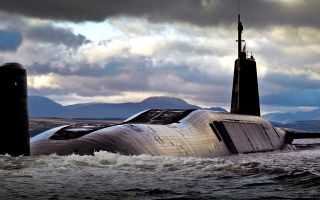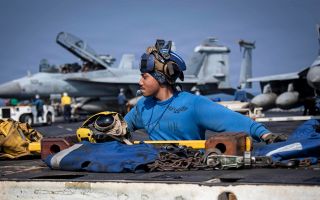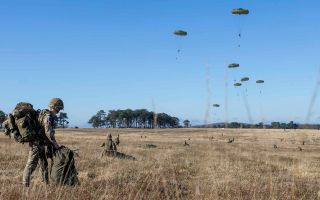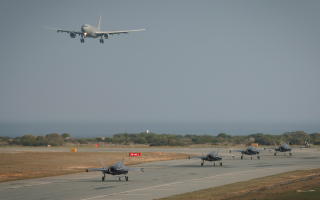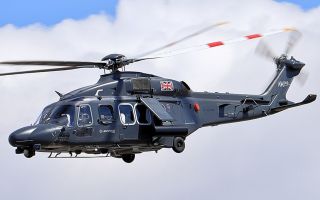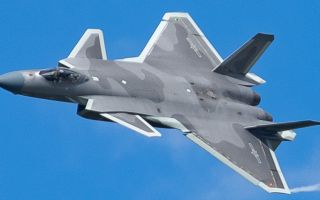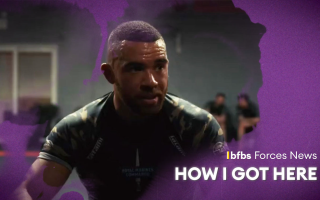Cheat sheets and no nudity: Former British Army officer's advice for life on civvy street
How I Got Here is a new series from BFBS Forces News, focusing on the transition from the military to civvy street. We've spoken to veterans whose military careers have come to an end, either by choice or through a life-altering event. As people who have been there and done that, they offer invaluable advice for those considering leaving or who need some support right now.
Warning: This article discusses themes of suicide and struggles with mental health. Some of the details in the article and video may be upsetting for some readers.
Almost a decade into a career as a British Army officer, Harry Mackarness saw something so horrific on tour that, he said, it caused his "brain to melt".
Despite having faced similar, if not worse, situations in the past, this particular sight struck him like a train, leading him into a spiralling battle with emotions he wasn't expecting.
The life-altering moment helped him realise he could no longer remain in the military career that had once felt like the perfect fit.
In a frank and open discussion with BFBS Forces News, Mr Mackarness, now a coach and hybrid athlete, has spoken about life after the military and what advice he would give others making the transition to civvy street.
Mr Mackarness gets straight to the point when he says service leavers need help with 'real life', adding that, when personnel leave the military, they are essentially starting their whole life from scratch.
"Everything you are, everything you've known, you then restart it," he said.
Now a strong presence on social media, Mr Mackarness' career was once very different.
At first, he commissioned into the Parachute Regiment, but an injury forced him to transfer to the Light Dragoons, where he spent eight years.
He then joined 77th Brigade, a hybrid unit of regulars and reservists with specialist skills to combat new forms of warfare in the information environment.
His career also saw him involved in Noncombatant Evacuation Operations during rising tensions in Iraq and working at Downing Street during the early stages of the Covid pandemic, an experience he found fascinating.
He said: "I got to sit in Cobra meetings, chatting to spies around the world who were giving updates about what was happening in each country."
However, following a deployment attached to Special Forces, Mr Mackarness knew his time had come to leave the military.
This thing just caused my brain to melt
Prior to witnessing such a "horrific" sight on tour, Mr Mackarness thought of himself as a "pretty emotionless sort of guy".
"Suddenly something just really hit me like a train," he told BFBS Forces News.
"I've seen similar things before and, in fact, probably worse, but this thing just caused my brain to melt.
"Anyone who's been through this sort of crisis that you can have at some of these points will probably understand that it isn't the thing that makes sense to be, or the hardest thing you've ever had to deal with, for sure. It's just sometimes certain things stick in your brain.
"For me, there was a personal moment there where I thought, you know what? I just can't be in this environment anymore."
The experience led Mr Mackarness to kickstart the year-long process of giving notice to leave the military.
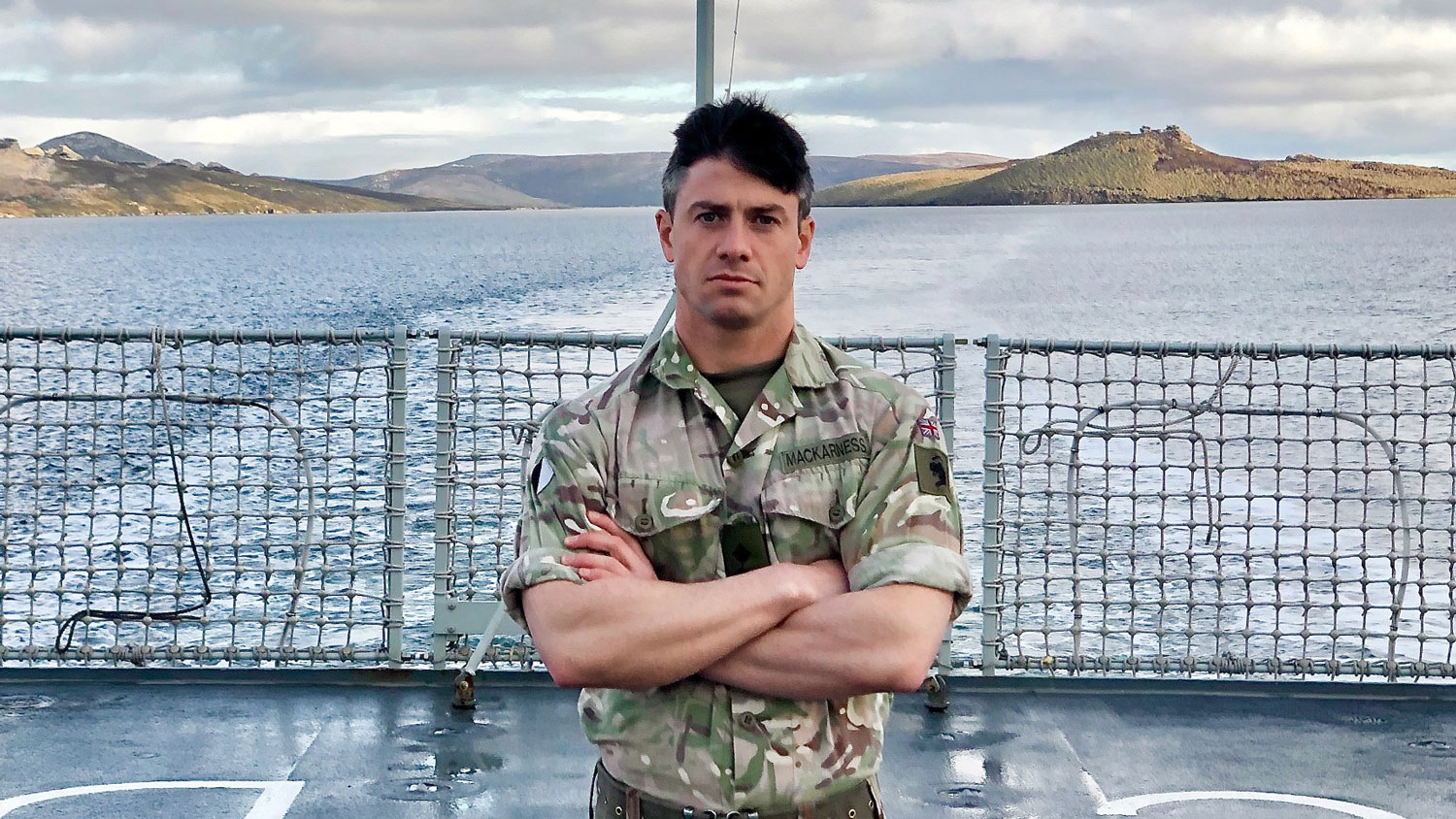
By the time he left, he felt frustrated with the system that was meant to help service personnel transition to civilian life.
He worked with several career managers who, he freely admits, do have a difficult job as they have lots of people with varying needs.
However, he felt as though the skills he learned in the military weren't considered at all and that the process was very formulaic.
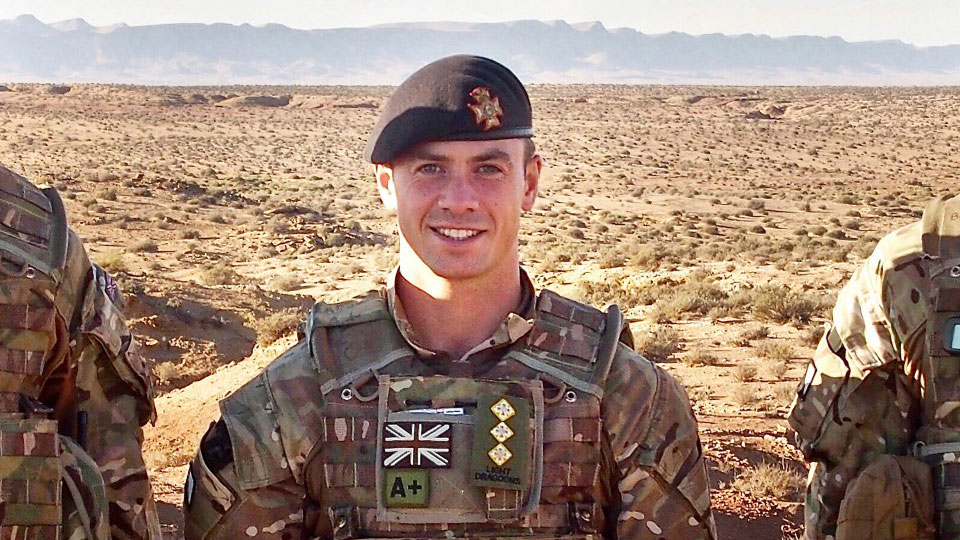
It's an all-encompassing everything
However, while Mr Mackarness found some aspects of leaving the military difficult, he is very clear that he also feels positively about his time with the British Army and would still recommend it as a career.
He said: "Even for a bit, to anybody who's thinking about joining, simply because... you cannot get from civilian life what you get from the military.
"It's not just a job. It's not just a life. It's an all-encompassing everything."
One of the things he most values from his service is the friends he made along the way.
He speaks with such pride about the military's work ethic and how that bonds service personnel together in a way he's not seen during his civilian career.
He knows with absolute certainty that if everything were to go wrong, he could rely on one of his mates from the military to support him.
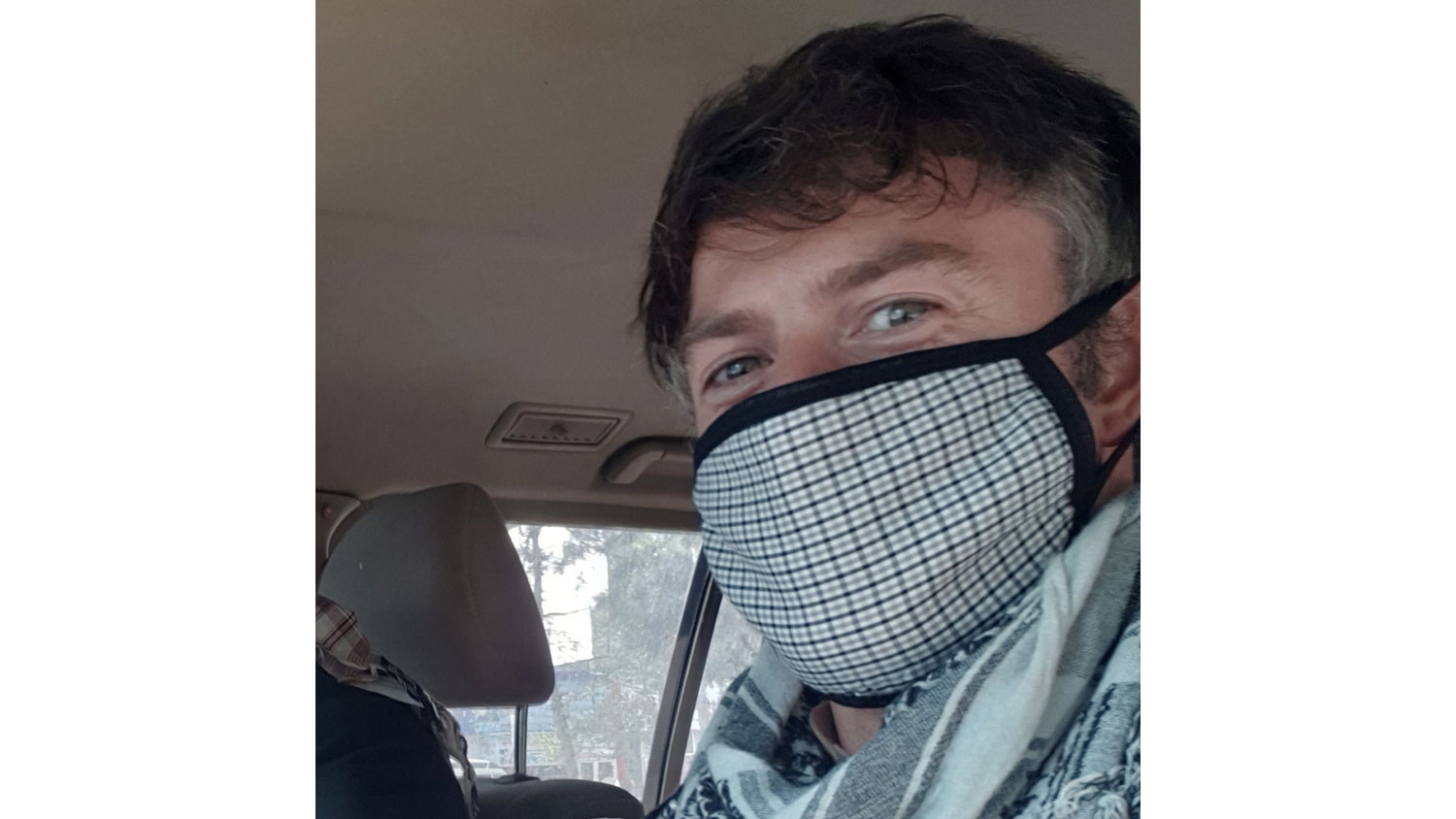
How did the military help him transition?
Mr Mackarness says there is a lot of help available for those wishing to transition to civvy street or progress in their military career, but that he used none of it.
He believes the problem is that the help isn't signposted well enough and that he still has "no idea what a learning credit actually is available for".
Additionally, his experience highlighted to him a disconnect between what is mandated and the reality faced by those leaving the military or seeking promotion.
He said: "There is a policy document at JSP (Joint Service Publication) that says you must be given the time to prepare and go on selection if you want to, but you find me a single person who's done it that has ever had a CO be like, 'Absolutely mate'.
"If I had turned around and said I need to take Thursday and Friday off because I need to drive to Aldershot to go and sit in a PowerPoint brief for five hours about what getting out the military looks like, they would have said absolutely not."
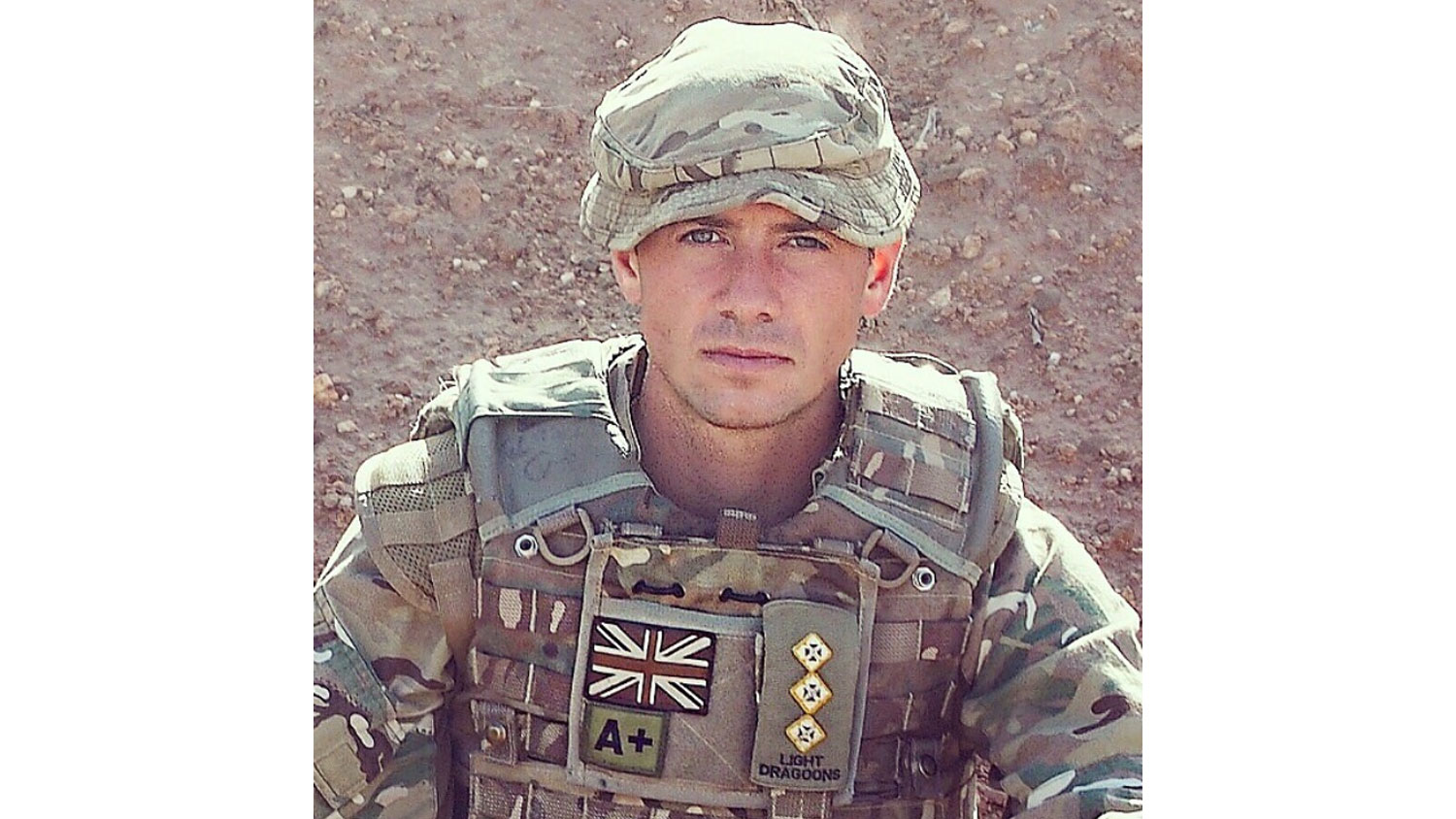
Take a break
There is one piece of advice the former British Army officer wishes he had been given.
He wishes someone had taken him to one side and told him to take a break.
Instead, while in the depths of PTSD and feeling like he might dwell on the horrific sight he witnessed on tour if he had too much downtime, he chose to go straight into a civvy street work environment, initially in a corporate role working closely with other former military personnel, before setting up his own fitness coaching business.
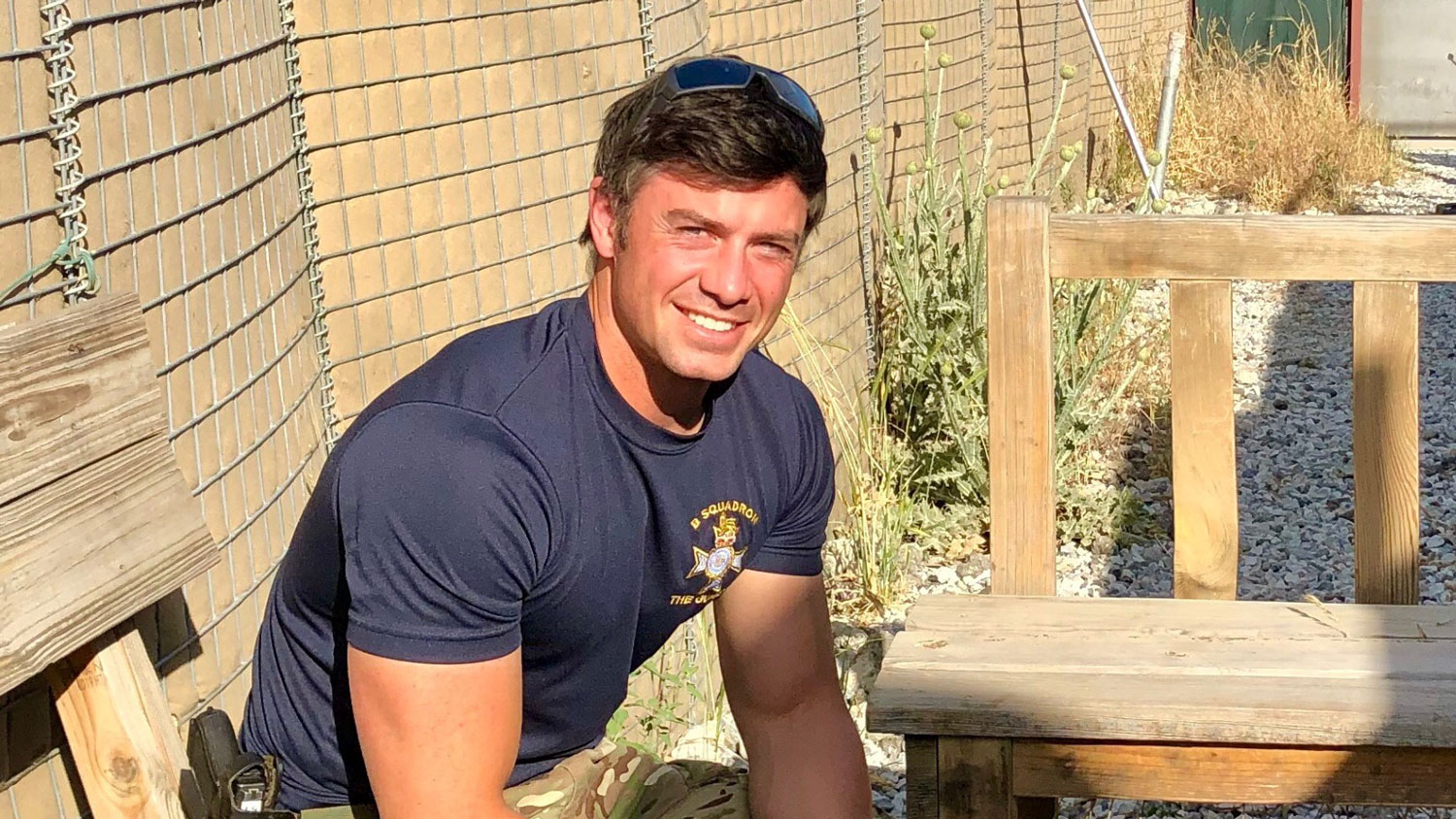
The former British Army officer speaks openly on his social media platforms about some of the struggles he faced during his transition to civvy street and says he receives hundreds of direct messages every week from veterans and serving personnel who are struggling with the transition period.
He said: "You probably haven't had any time off in years because you've had to do 12 different parades on a Sunday and you've had to paint the grass green for when the colonel of the regiment comes to visit next week."
Mr Mackarness is keen for those leaving the military to pause for a moment, spend time with their loved ones and think clearly about what their future could look like.
Cheat sheets for civilians
As he climbed onto the corporate ladder in London, Mr Mackarness benefited from the support of other veterans, particularly a housemate who showed him the ins and outs of city life.
"It was just very useful having somebody to show me the ropes," he said. "I'd never done the commute before, so it was really helpful to go with him because he knew what time the platform was going to be busy."
Seeking to share his newfound knowledge, Mr Mackarness made 'cheat sheets' for other veterans who were new to London to help ease their transition – even down to the politics of office lunches.
"Things like go to this platform at this time and get this train to go here and then swap at this point and also take your lunch with you, because I promise you, you won't be able to afford it working in central London on a base salary.
"But twice a week, don't forget, they're all going to sit around and get food together. So you need to just not take it for that day and work out when your colleagues want to sit down and chat. But these are kind of things that aren't really covered," he said.
He said: "Also, they'll go for drinks on a Thursday, maybe Wednesday as well, but they do not want to see you take your clothes off at the bar."
Last man across the finish line
Now on the other side of transition to civvy street, Mr Mackarness is keen to help others facing the same journey.
From his experience, he knows that, just like in the military, you'll encounter a mix of high performers and those who contribute less.
Another significant cultural difference is the difference in team dynamics.
In the military, teamwork and unit success are vital, whereas, in the civilian world, individuals often focus on personal achievements.
He said: "All of it is about everybody winning because you have to get that last man across the finish line.
"That doesn't exist in civvy street, and I think it's something that military people really, really struggle with."
There are differences when it comes to your salary on civvy street as well – you'll notice different things on your payslip, such as National Insurance and pension contributions.
Finally, a sense of humour can really help.
Like the military, which Mr Mackarness says often feels held together by "black nasty", a little laughter is a vital component for a time of great change.
Later this month, Mr Mackarness is running 100km through the Sahara Desert to raise money for military charities. You can find out more about the challenge and his fundraising campaign here.
If you or someone you know needs support at this time, find help available on our website.

